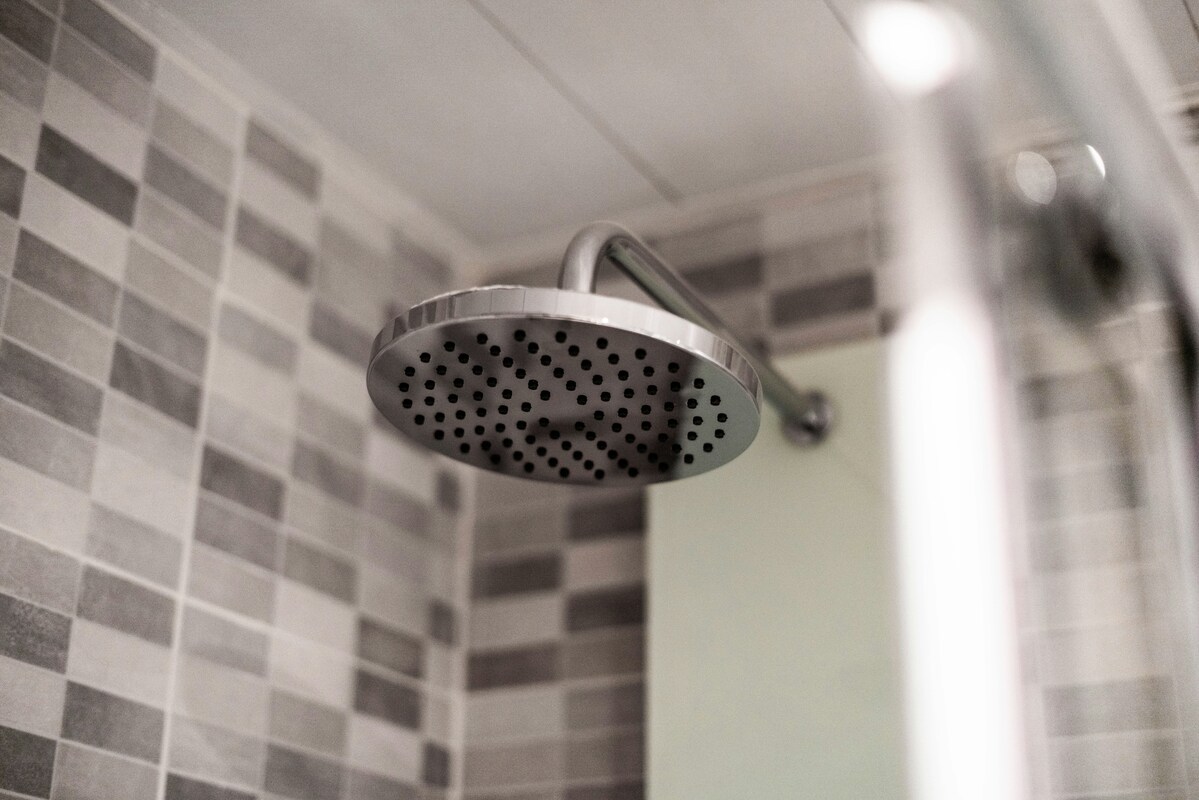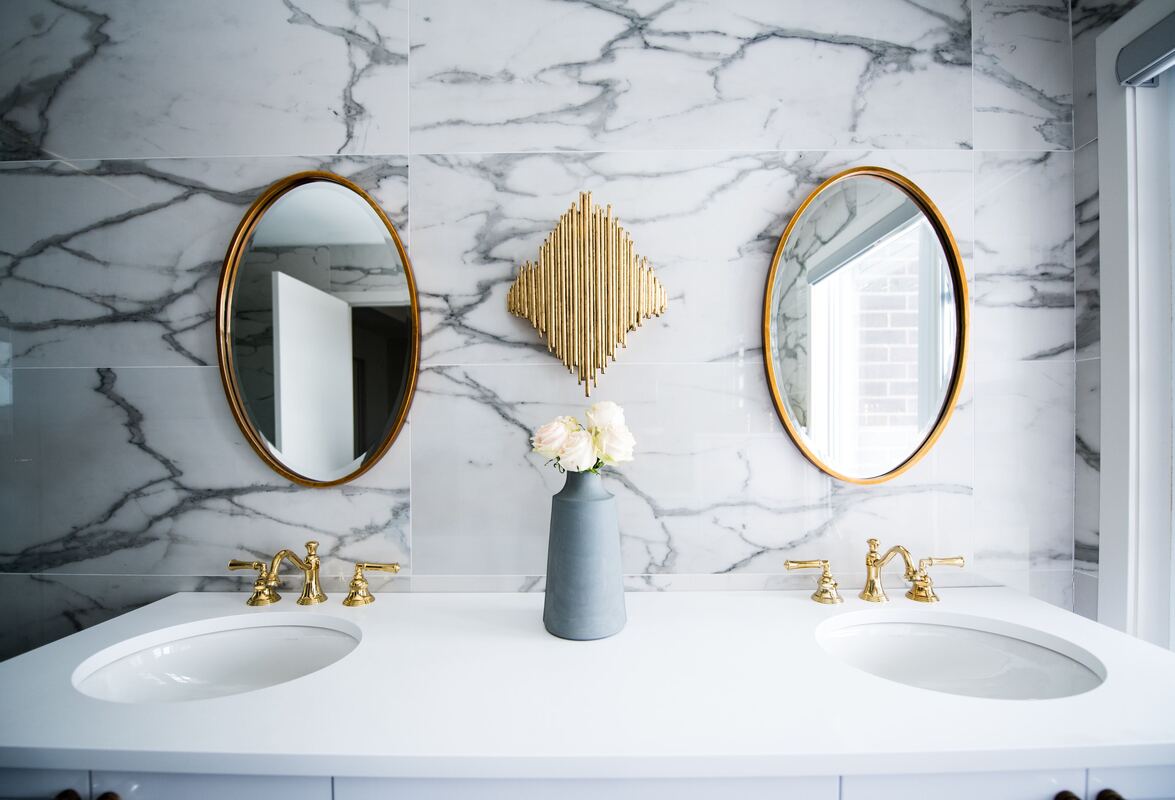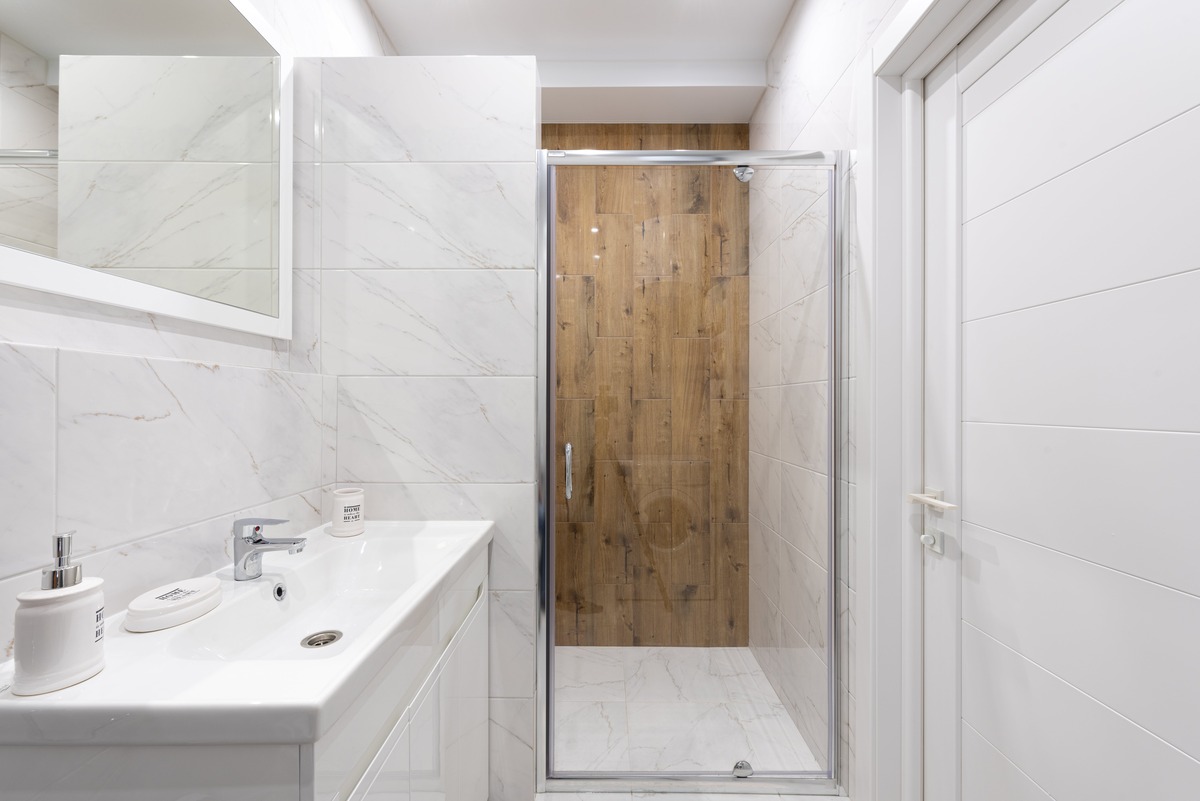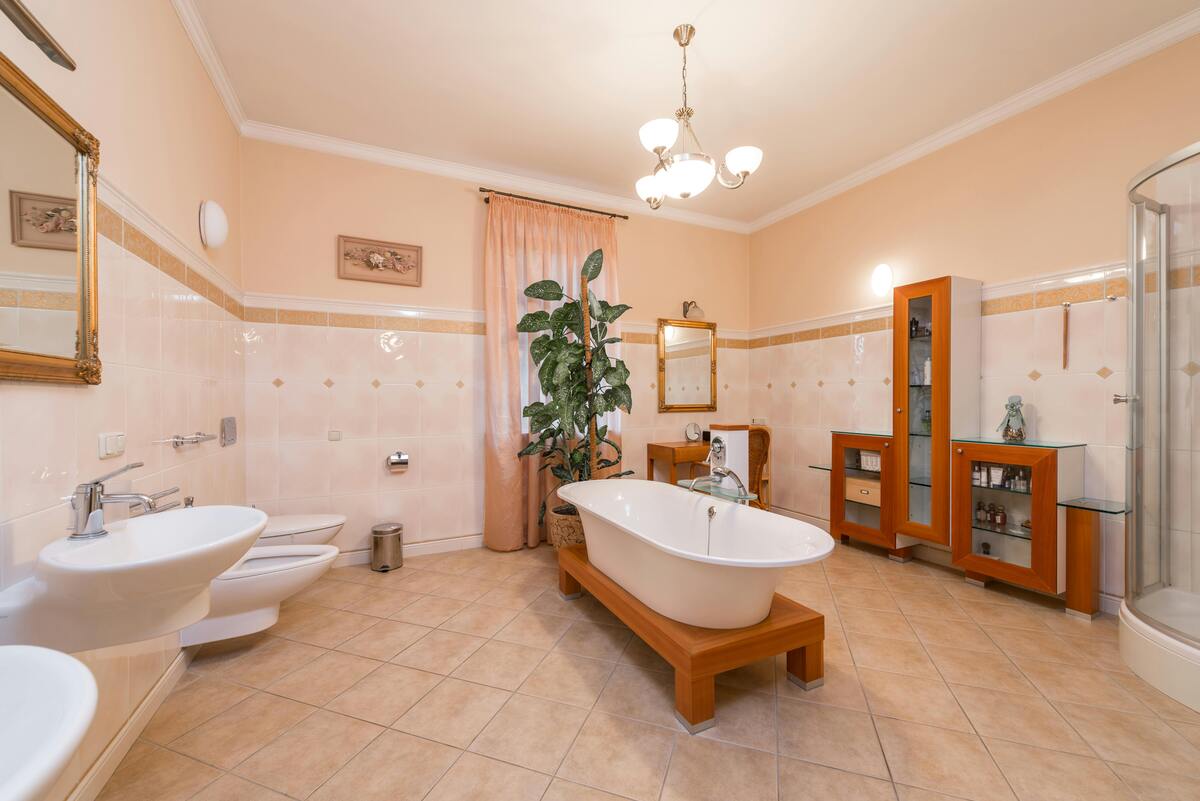How Does an Electric Shower Work? Our Guide

If you’ve ever wondered, “how does an electric shower work?” you’re not alone.
Some assume it’s connected to the boiler. Others think it’s just a fancy pump. The truth is a bit simpler — and perhaps even a little surprising.
With studies showing that around 64% of Brits prefer showering to bathing, many people have showers in their homes, but few will be well versed in exactly how they work.
An electric shower does not work on the basis of whether your boiler’s on or your hot water tank is full. It’s independent.
Cold water goes in, it heats it instantly inside the unit, and out comes a hot shower. That’s it. No waiting for tanks to refill, no timing your shower around everyone else in the house!
Let’s break down exactly how they work, and whether or not one might be the right fit for your bathroom.
Key takeaways: How does an electric shower work?
- Electric showers heat water directly, using an element inside the unit.
- They only need a cold water supply and electricity — no boiler.
- The power rating (measured in kW) makes a big difference to how hot and fast the water feels.
- They’re great in homes with small tanks, busy families, or for backup if the boiler fails.
So, how do electric showers work?
Think of a kettle. You fill it with cold water, flick the switch, and a metal element warms it up.
Now imagine that same idea, but on a different scale and happening almost instantly. That’s more or less what an electric shower does.
When you turn it on, cold water from the mains supply runs straight into the shower unit. Inside, there’s a heating element.
As the water flows over it, it heats up. A thermostat inside makes sure it doesn’t get too hot, and that the temperature you’ve chosen on the dial stays steady.
Because the water heats on demand, you don’t need a tank full of pre-heated water.
Even if the cylinder’s empty because three people have showered before you, your electric shower will still deliver hot water.
Do electric showers heat the water themselves?
Yes — and this is what makes them different to mixer showers.
A mixer shower blends hot water from your tank with cold water from the mains. If your boiler’s off or the tank’s run dry, you’re out of luck.
They pull water straight from the mains and heat it themselves.
As long as you’ve got a working cold feed and electricity, you’ll get a hot shower.
That’s why they’re so popular in guest bathrooms and en-suites. They don’t put extra pressure on the household boiler.
If you want to learn more about the different types of showers available, we’ve covered it in our blog.
A closer look inside
If you want to picture it step by step, here’s what’s happening while you’re under the spray:
You switch it on. Water flows in. The element warms it almost immediately — no waiting.
As you adjust the dial, the flow changes. A slower flow gives the water more time over the element, so it comes out hotter. A faster flow is cooler.
The thermostat does the hard work of balancing it all, making sure you don’t get scalded if the pressure changes suddenly.
The whole thing takes a matter of seconds from tap to showerhead.
Why power ratings matter
Not every electric shower feels the same, and that’s down to power. Units are rated in kilowatts (kW), usually between 7.5 and 10.5.
A higher rating means the shower can heat more water, more quickly. In real terms, that gives you a stronger flow and a more reliable temperature, even in winter when the mains water is icy cold.
Lower ratings are cheaper to buy and can be slightly cheaper to run, but the flow may feel weak. If you’re used to a pumped shower, you might find a 7.5kW unit underwhelming.
One thing to bear in mind: higher-powered showers sometimes need electrical upgrades. A 10.5kW model pulls a lot of current, so an electrician may need to check if your wiring can handle it safely.
Are they right for your home?
That depends on your setup.
- If you’ve got a small tank and find it runs out halfway through the morning routine, an electric shower could be ideal. They’re also great as a second shower — maybe in a guest en-suite — because they don’t strain the hot water system.
- Shared houses often benefit too, since multiple people can shower back-to-back without draining the tank.
- And for mobility-friendly bathrooms, they’re reliable and safe. Many models have built-in temperature limiters and thermostatic controls, which stop sudden bursts of hot or cold water.
Even if you already have a good main shower, adding an electric one elsewhere in the house can be handy insurance against boiler problems.
FAQs: How do electric showers work?
How do electric showers work without hot water?
They heat the water themselves, straight from the cold mains. No boiler or cylinder needed.
Do electric showers use a lot of electricity?
They use a fair amount while they’re running, but only for short bursts. Because they heat water on demand, they can be efficient overall.
Are electric showers better than mixer showers?
Not better, just different. Mixers can feel more powerful if you’ve got a strong boiler system, but electrics are independent and more reliable.
What power rating should I go for?
Most people choose between 8.5kW and 9.5kW. That’s a good middle ground between performance and installation requirements.
Are electric showers safe in older bathrooms?
Yes, if installed correctly. Modern units have safety cut-offs and thermostats built in. Always use a qualified electrician for fitting.
Summary: Electric showers
So, how does an electric shower work? The simplest way to put it: it takes cold mains water, runs it over a heating element, and sends it out hot — all in a matter of seconds. No tanks, no boiler, just instant hot water on demand.
For many homes they’re practical, reliable and cost-effective. If you’re thinking of updating your bathroom, they’re well worth considering.
We hope you found this guide useful For other articles, please take a look at our full blog – with articles including:
- Replacing a bath with a shower
- Wet room ideas for the disabled
- Shower room ideas to inspire you
- Bathroom ventilation guide
Ability Bathe are bathroom fitters Devon homeowners rate highly.
We’re bathroom fitters Torquay trusts, bathroom fitters Exeter loves, bathroom fitters Plymouth….
In short, we’re a local family-run bathroom design and installation business, offering a free design visit to your home.
At Ability Bathe, we design and install walk-in showers and mobility-friendly bathrooms across the South-East. If you’d like to know whether an electric shower is right for your setup, contact us today.





